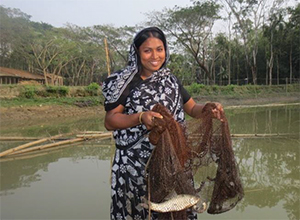SPRING Promotes Gender Equality and Women’s Empowerment during Producer Organization Training Series
On January 18, 2017, SPRING/Senegal facilitated a one-day workshop on gender equality and women’s empowerment in the region of Kaolack. The workshop was organized as part of SPRING’s strategy to improve the nutritional status of pregnant and lactating women and children under the age of two. Women in Senegal often play several key roles in the household: they are responsible for cultivating vegetables and other crops, preparing food at home, keeping the household tidy, and caring for their children.
